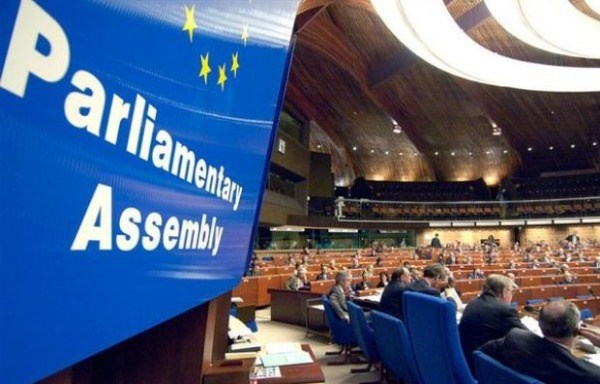PACE: Russia Awaits New Sanctions
The powers of the Russian delegation to the Parliamentary Assembly of the Council of Europe (PACE) will continue to be suspended because of the annexation of Crimea and the war in the Donbas region.
State Duma deputies representing Russia at the Parliamentary Assembly of the Council of Europe (PACE) could receive a cold reception from some of their European colleagues during the opening of the winter session. It will begin its work on January 25th in Strasbourg. According to a source in the secretariat of the PACE, “it can be assumed with a high probability" that the powers of the Russian delegation will be suspended by the deputies of the Assembly on the first day of work.
The delegation of the Russian Federation is still under sanctions imposed by PACE in April of 2014 due to the annexation of Crimea. According to the resolution, the Russian deputies were deprived of the right to vote in this organization, as well as the right to be represented in its governing bodies. Since then, the sanctions against the delegation from Russia were extended twice, and in the relevant resolutions the Assembly called on the Kremlin to return Crimea, to stop military aggression in Donbass, and to withdraw Russian troops from the Eastern Ukraine.
According to the PACE procedure, every year during the opening of the January session the powers of all national delegations should be re-confirmed. If the legality of the presence in the hall of the representatives of a particular country seems questionable to any other representative, he should stand up and voice his objections, explaining the reasons. At the same time he must be backed up by a minimum of 30 MPs from the five delegations of the Parliamentary Assembly of the Council of Europe.
Initiative Group
According to a source in PACE, during the January session the initiative to appeal the rights of the Russian delegation will be supported by the deputies from Sweden, Lithuania, Estonia, Poland and the UK.
The PACE Monitoring Committee will most likely prepare a resolution on the Russian question. It will be put to vote in the Assembly on Thursday, January 28th. The decision may confirm the credentials of the Russian delegation, cancel them out completely or confirm them with certain limitations (for example, the representatives of the Russian Federation once again may be denied the right to vote, which would, in fact, extend the existing sanctions).
According to RIA Novosti, the head of the Russian delegation, Alexei Pushkov, has already stated that the State Duma won't participate in the January session of the PACE if there are no visible prospects for lifting the sanctions. He promised to make a final decision in mid-January after a careful examination of the trends in the Assembly.
Nevertheless, as explained by the OSCE Secretariat, the powers of the Russian delegation can be appealed and reviewed by the Assembly, even if the Russian deputies never arrive in Strasbourg.
Questionable Advantage
Moscow still has one more trick at its disposal which can help it to make its own move in Strasbourg. According to PACE procedure, for the credentials of the delegations to be approved at the beginning of the year there must be an appeal by the President of the National Parliament with the President of the Parliamentary Assembly of the Council of Europe. If in a week before the start of the session the State Duma Speaker Sergei Naryshkin does not send such a letter to PACE President Anne Brasseur, it will be assumed that Russia hasn't delegated its representatives to the Assembly.
"In this case, everything works according to the principle: no delegation, no credentials," the source in PACE said, adding that in this way the Russians will remove themselves from the Assembly "for the near future."
However, according to the official, that situation is "purely hypothetical" and Naryshkin will still have time to appeal with Brasseur, according to the procedure, asking for the credentials for the Russian delegation to the PACE.
